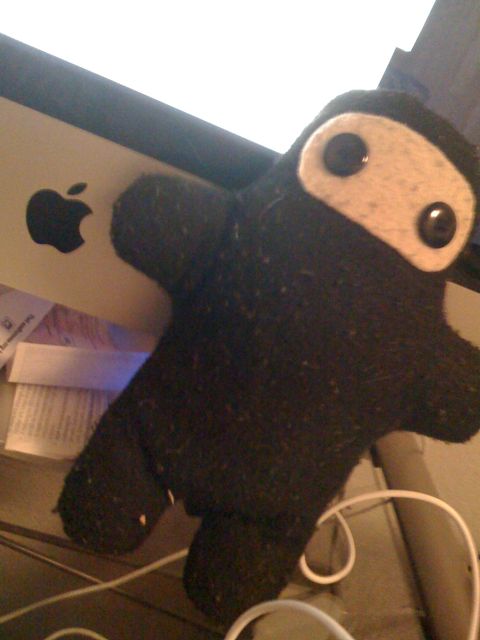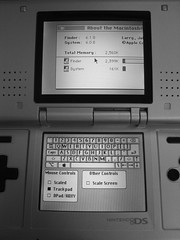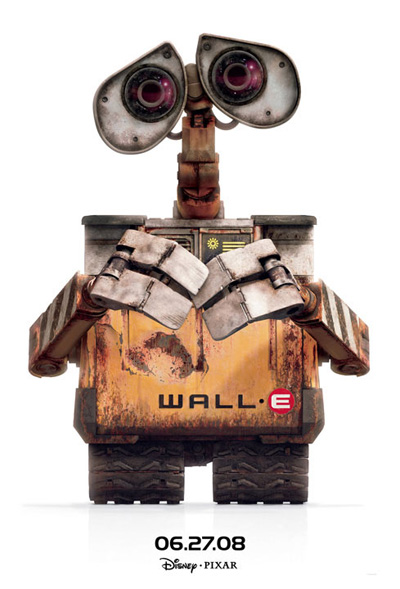There is a certain aesthetic about old Macintosh computers that I love. Each subsequent model is an improvement upon its predecessor. With each successive model the influence on design and use is observable. Machines from the 1980’s still function as they did out of the box. Try to find a bland beige-box PC from the era and compare.
This last week my collection of Apple computers crossed a baker’s dozen. Christmas is coming up and this year I’m wishing to expand my collection. Instead of shiny new things I want old, dingy, and used. eBay ahoy!
1. The Macintosh
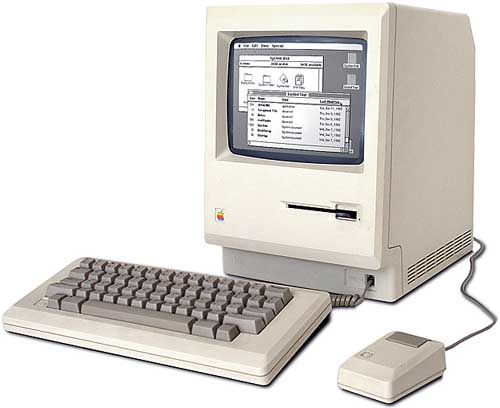
This is the one that started the desktop revolution in 1984. The whole Macintosh operating system fit on a 400k disk along with its applications. In comparison the average single MP3 music file today is about 5mb or 5,120k. Despite this storage limitation the Mac was the first computer to have an easy to use animated interface and brought desktop computing to the masses. As the years went on the Macintosh was upgraded periodically. These computers are lovingly referred to as “Toaster Macs” for their all-in-one appliance Gestalt.
They come in a variety of flavors, some of which I already own. In order of lust these are the ones I’m seeking to add to my racks-o-Macs.
- Macintosh 128
- Macintosh SE/30 (the Corvette of Toaster Macs)
- Macintosh Classic II
- Macintosh 512
- Macintosh Plus
Watch for: extreme case/keyboard/mouse yellowing
Price: $75-300+
2. The Apple IIc
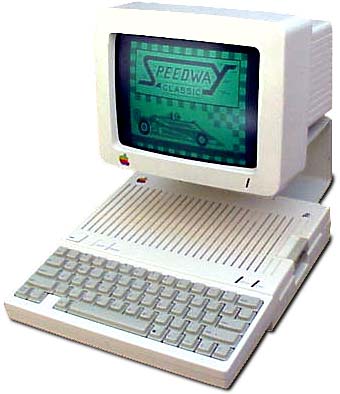
I remember in sixth grade when one of my classmate’s family donated the Apple IIc. It was functionally no different than the regular Apple II we had. It ran all the same MECC (Oregon Trail, Odell Lake, Number Muncher) software. It ran that stupid tracking/testing program that monitored our required reading that led to many missed recesses. Nevertheless people fought each other to get on it. Why? Because the thing look crisp, white, and like it was from the future. Of all the Apple II models that came out over the years the IIc and its variants are the most aesthetically pleasing.
Beware of: must include monitor
Gold: $40-80
3. Macintosh Color Classic
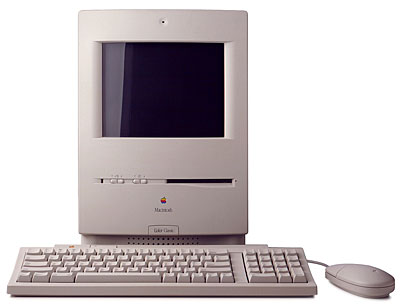
I have never actually seen one of these machines in person. I’ve only heard collectors rant and rave about how much they love this machine. The beautiful color screen has the ability to display some of the earliest Quicktime movies. If I had one of these machines I would string an ethernet connection to it and put it through its paces. It is the spiritual predecessor to the iMac and I would love to have one in my collection.
Note: case yellowing, screen functions
Dough: $100-150
4. iBook G3

The 12″ iBook G3 was perhaps the worst laptop in terms of quality control they ever released. I owned two of these beasts secondhand. Both received free logic board replacements courtesy of an official recall during the course of their useful lives. In both cases my 600 MHz processor was upgraded to 700 and later 800 MHz. Overheating on the motherboard eventually caused one of the chips to raise out of its socket and fail. While I was studying abroad in Germany my later iBook began exhibiting the same problems that had caused the first one to tank completely. For four months I put up with random freezes, crashes, and errors. As my only means of contacting people back home I was desperate to keep the machine running. With only a toothpick, a small screwdriver, a lighter, some tape, and my bare hands I kept that white monster going. Two days before I was scheduled to return home the computer finally took a fatal dive and never came back on.
Despite all that hardship I’ve developed a deep-seated love for this model of laptop. It’s simple design truly embodies what a laptop should be. Simple, small, portable, capable, and road-ready. Apple fixed most of their overheating issues with the G4 iBook. But I still have a sentimental attachment for the G3 model.
Achtung: dead pixels, cracked/scratched outer casing
Shekels: $200-400
5. Newton MessagePad 2000/2100
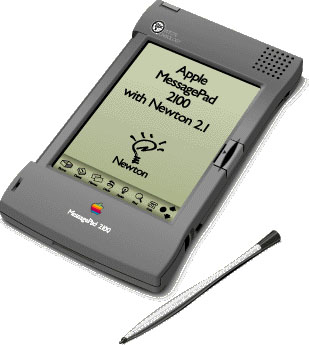
Before dropping the cold hard cash for an iPhone 3G I seriously considered purchasing a Newton MessagePad 2000/2100 to play with. This device was, in typical Apple fashion, way before its time in 1996-98. The Newton featured a touchscreen, handwriting recognition, expandability options, and the ability to tether an internet connection for web and e-mail applications. In fact it still has a large cult following with developers still writing applications.
Observe: included keyboard, memory cards, adapters, screen cover
Monies: $75-250
